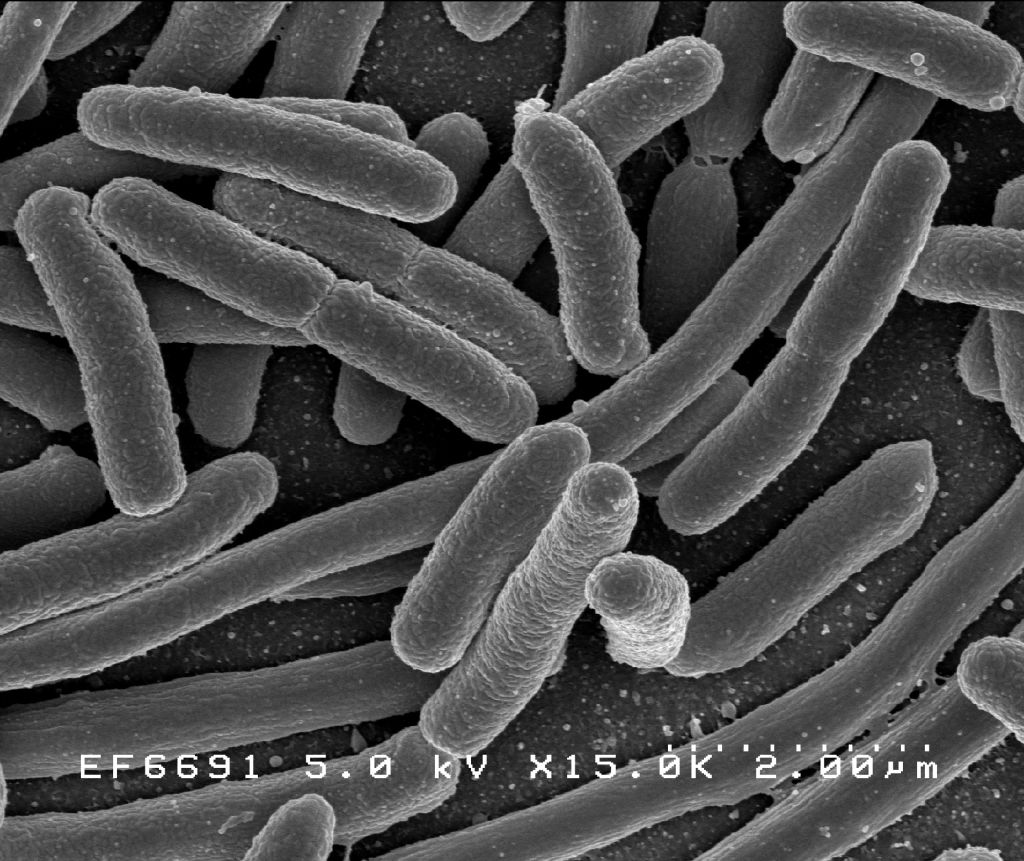Scientists in Israel have uncovered a chemical suicide signalling pathway that turns E. coli into the bacterial equivalent of lemmings, a discovery which could lead to a new generation of powerful antibiotics.
 Writing in this week's Science, Ilana Kolodkin-Gal and her colleagues at the Hebrew University in Jerusalem describe the discovery of a "death factor", which triggers E. coli to kill themselves. E. coli carry a gene "module" called mazEF, which produces a long-lived toxin called MazF and a short-lived anti-toxin MazE. So long as the genes remain switched on all is well, because the antitoxin blocks the action of the toxin. But if the cell is stressed - such as might occur when bacteria are attacked by viruses, or if food becomes scarce, the gene switches off and the short-lived antitoxin disappears. This leaves the stable MazF unchallenged to kill the bacterium, which it does by chewing up genetic material inside the cell. The bugs activate this system when their population exceeds a certain level, the purpose being to ensure the survival of other members of their colony, because self-sacrifice can be used to deal with virus infections or lack of nutrients. However, the chemical identity of the molecule that trips this suicide switch, known as EDF was not known.
Writing in this week's Science, Ilana Kolodkin-Gal and her colleagues at the Hebrew University in Jerusalem describe the discovery of a "death factor", which triggers E. coli to kill themselves. E. coli carry a gene "module" called mazEF, which produces a long-lived toxin called MazF and a short-lived anti-toxin MazE. So long as the genes remain switched on all is well, because the antitoxin blocks the action of the toxin. But if the cell is stressed - such as might occur when bacteria are attacked by viruses, or if food becomes scarce, the gene switches off and the short-lived antitoxin disappears. This leaves the stable MazF unchallenged to kill the bacterium, which it does by chewing up genetic material inside the cell. The bugs activate this system when their population exceeds a certain level, the purpose being to ensure the survival of other members of their colony, because self-sacrifice can be used to deal with virus infections or lack of nutrients. However, the chemical identity of the molecule that trips this suicide switch, known as EDF was not known.
To find it, the team collected extracts from the media used to grow dense cultures of bacteria, and then picked through the chemicals individually to identify the EDF molecule, which turns out to be a short protein sequence. The researchers were then able to make an artifical version of the protein that could fool small numbers of E. coli into thinking they were part of a much larger population, which primed their mazEF cell suicide programme. When the bugs were then stressed with a small dose of an antibiotic, they obliged by killing themselvse.
Coming at a time when the world is fast running out of antibiotic options, the discovery of this pathway could prove critical in the discovery of new ways to combat the rise of the superbug.










Comments
Add a comment